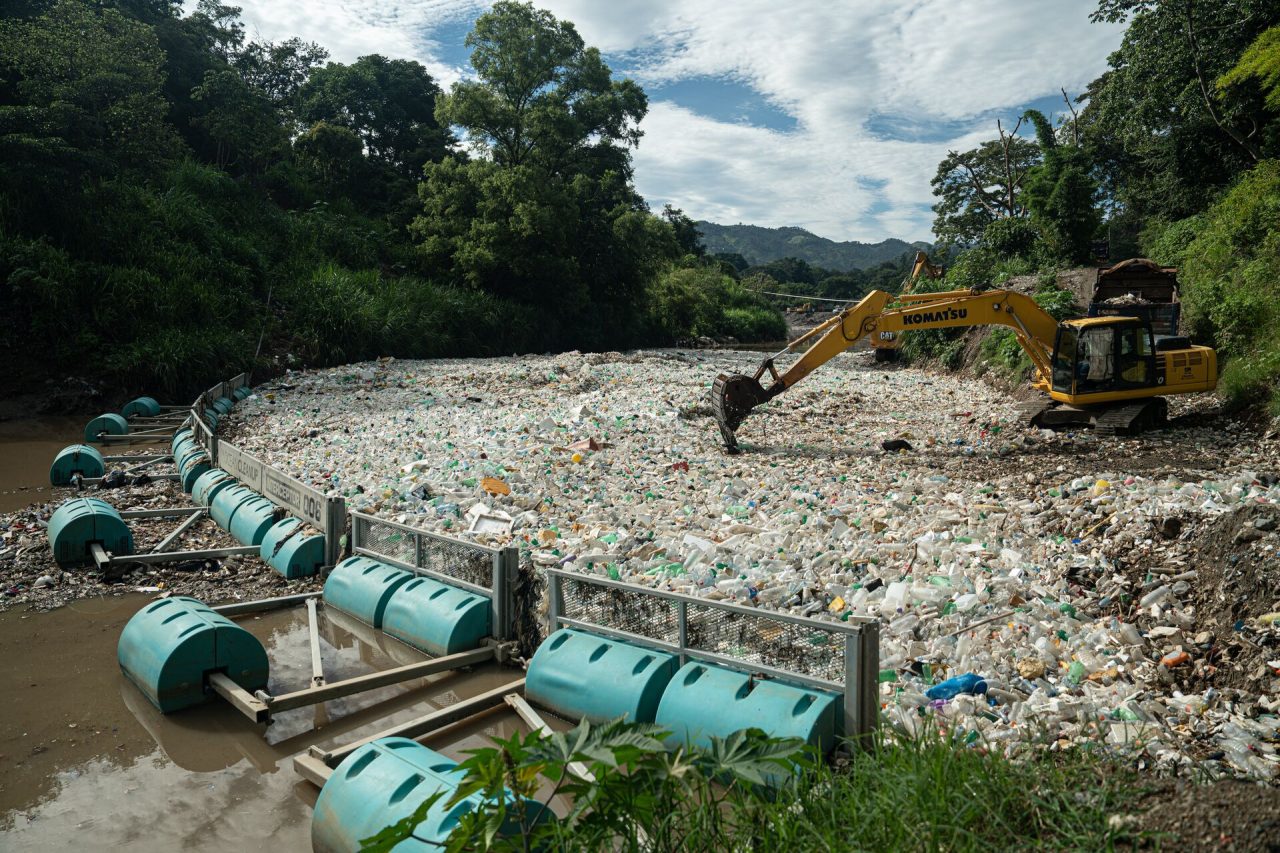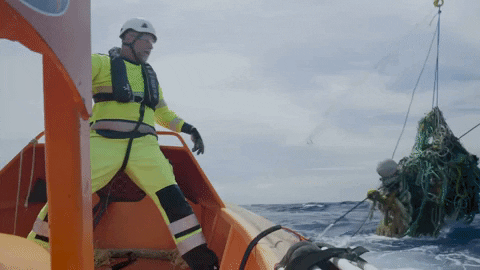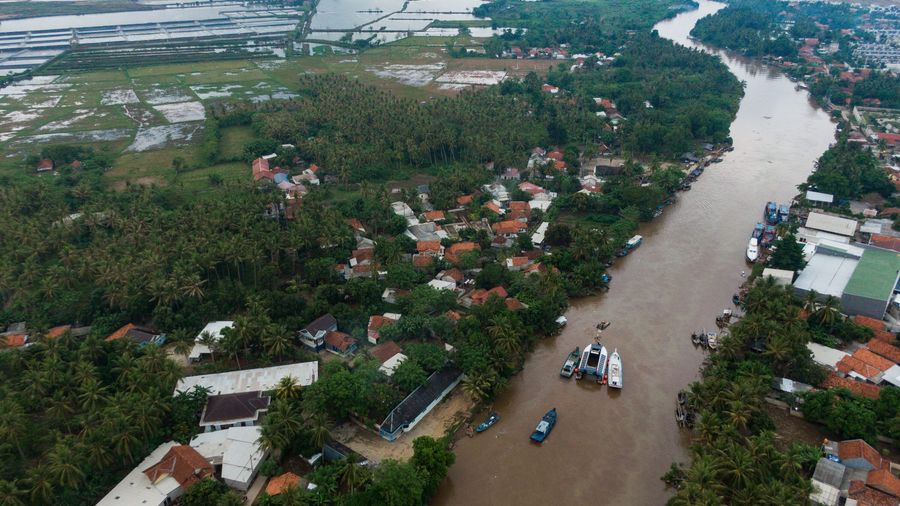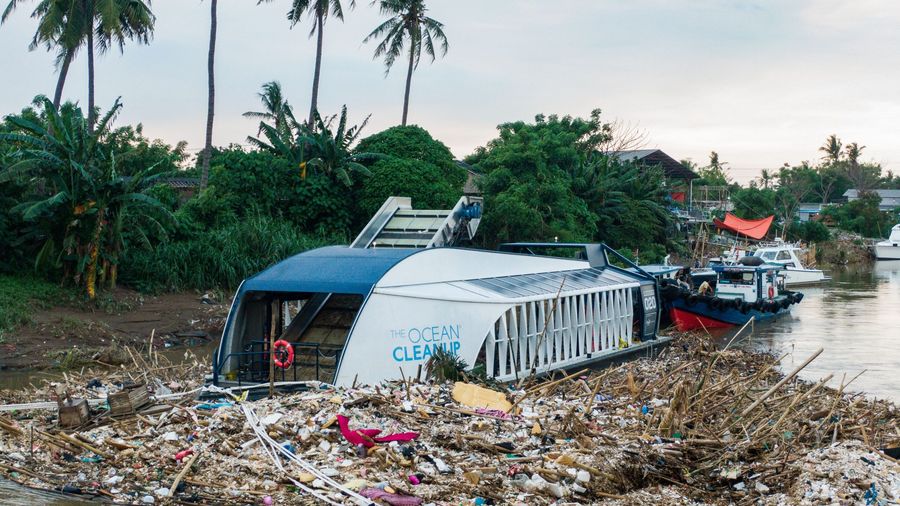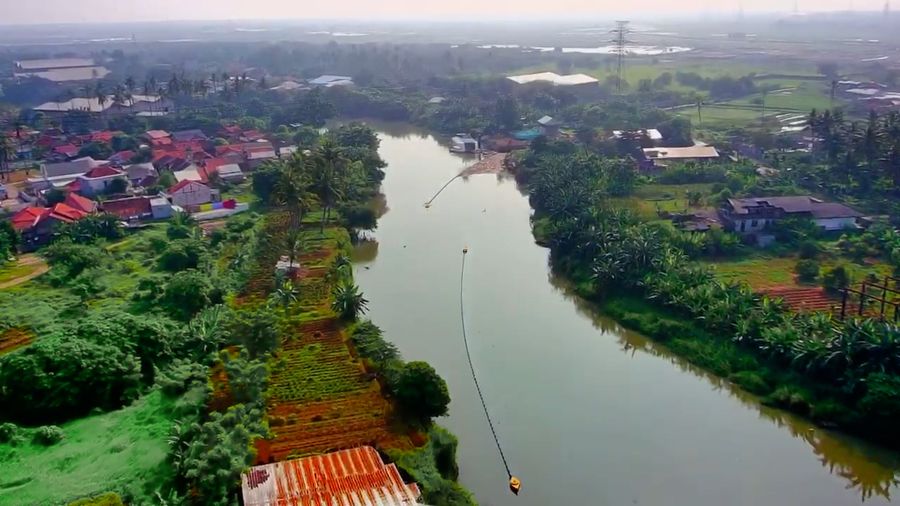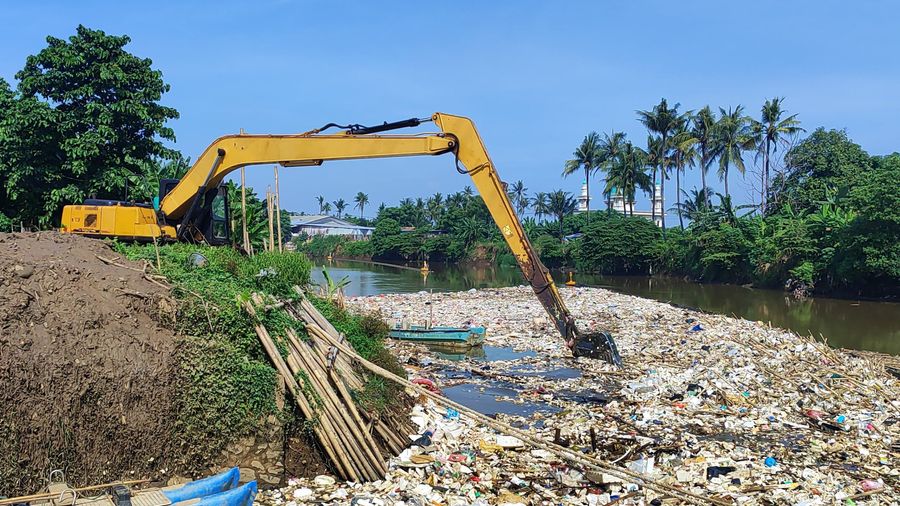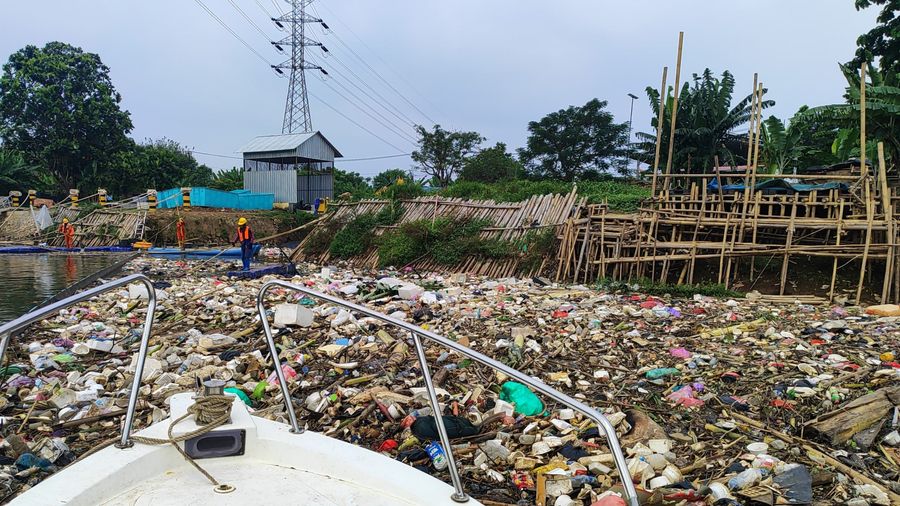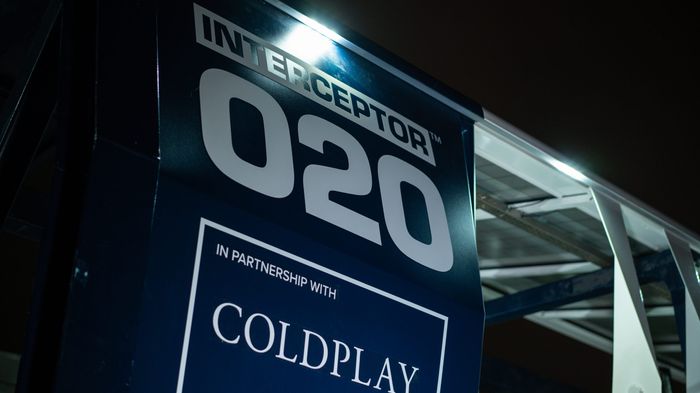
Improved Cisadane Interceptor to become fully operational
Back to updates- Coldplay – sponsored Interceptor will stop plastic flowing into the ocean
- Collaborative project will boost livelihoods of local communities
- Cisadane River is vital ecosystem for bird and fish species
Following a weather-related incident, The Ocean Cleanup’s Interceptor™ 020 is set to go back into operation to help tackle the estimated 3000 tons of trash flowing from the Cisadane River into the Java Sea each year.
Trash collected by the Interceptor, which is sponsored by the band Coldplay, will then be processed at a community-led riverside waste bank in Tanjung Burung, Indonesia. Alongside pre-processing the waste and repurposing valuable materials, a community outreach program will promote environmental responsibility by raising awareness amongst locals of proper waste separation disposal and recycling.
The Interceptor solution is a collaborative project that will also boost livelihoods for communities that rely on the river by creating 27 full time waste bank jobs and improving ecosystems and biodiversity in the river which is a habitat for a variety of bird and fish species.
Two barriers now span the banks of the river stopping the trash which will then be channeled towards the bankside Interceptor, from where conveyor belts will move it out of the water and direct it towards the waste collection units for sorting on land. Despite not yet being fully operational, the existing barrier system has already collected nearly 500 tonnes of trash so far this year.
Marco Piet, Rivers Director at The Ocean Cleanup, said: “We are proud to mark another milestone in our urgent mission to rid the world’s oceans of plastic by reintroducing our upgraded Interceptor solution into the Cisadane River to halt the flow of trash that has made a significant contribution to ocean pollution.
“It’s taken a great deal of time and ingenuity to overcome the challenges created by this unscheduled learning opportunity and it is testament to the hard work and dedication of our crew that the project is now back on track.”
The delay to the completion of the project, following the original deployment in November 2023, occurred after a rainfall saw large volumes of debris clog the Interceptor.
Our engineers then had to overcome the challenge of updating the system, so it was able to deal with the extremely high peak loads of trash that occur during the rainy season.
As part of the solution, two improved barriers were then put in place in two stages in September 2024 and April this year to provide 100% coverage of the river. The set-up was adapted so that in times of heavy trash load, an excavator can be used to remove built up trash in the containment zone and allow a steady flow of waste into the Interceptor, where an extraction conveyor belt is located.
Meanwhile, modifications repurposed Interceptor 020 into a direct-to-shore solution which is set to become operational in the near future. In collaboration with the Environmental Agency of Tangerang Regency (DLHK) and project facilitator Yayasan Bumi Pertiwi Asri (BPA Foundation), waste management and sorting capacity were also increased in line with the improved solutions and the increased volume of trash.
“Working in collaboration with our Indonesian partners, through a waste bank capacity building program, we are creating jobs and providing members of the local community with the skills and tools to recycle and reuse the waste in the long term,” added Demi Bartels, Business Development Manager at The Ocean Cleanup.
“The deployment also makes a significant contribution to the recovery of coastal and marine ecosystems as well as the diverse biodiversity that relies on the Cisadane River.”
Intan Nurul Hikmah, S.E., Deputy Regent of Tangerang, said: “The project has had a significant impact of the Cisadane River and supports our mission to preserve a sustainable environment and also contributes to the national strategy on Marine Debris Management.
“I hope that similar initiatives can be implemented in other areas such as the Dadap River, stressing the importance of preparing local communities with the necessary skills and ensuring continuous capacity building and infrastructure support to maximize impact.”
Agustin Hari Mahardika, S.Pi., M.Si., Head of Waste and Hazardous Waste Management at DLHK, added: “Before this initiative, DLHK faced serious challenges in managing waste accumulation along the riverbanks, which led to environmental degradation and posed a threat to coastal ecosystems.
“Since the deployment of Interceptor 020 and the establishment of a dedicated team, waste management along the river has become significantly more effective. The controlled flow of waste past the system’s barriers has already led to visible improvements in water quality, and the project is showing strong potential in reducing the amount of debris reaching the ocean.
“For long-term success, greater upstream collaboration among regional governments is crucial, along with continued support from the central government and private sector partners to ensure the sustainability and expansion of effective river waste management practices.”
